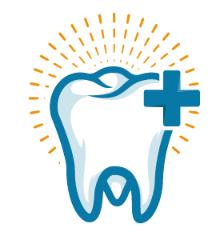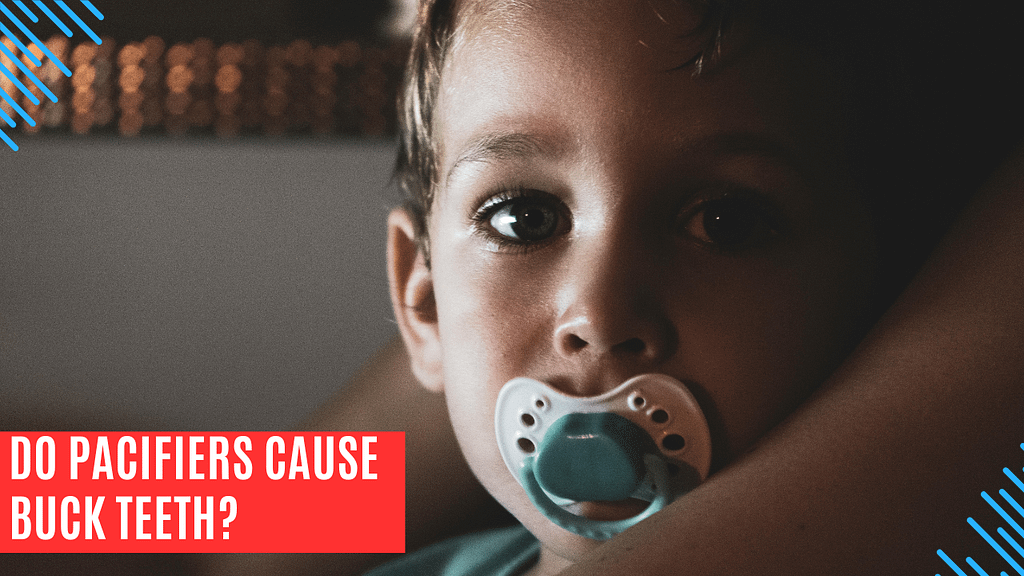No doubt pacifiers are beneficial for infants and toddlers in many ways; using pacifiers within a suggested age limit generally doesn’t cause serious oral issues. But after age 3-4, it could be a source of dental problems like buck teeth, overbite/crossbite, misaligned teeth, etc.
In this article, we will discuss in detail what buck teeth are, their signs and symptoms, do pacifiers cause buck teeth or not, and much more!
Follow oral directions to learn more about oral health and hygiene tips.
Do Pacifiers Cause Buck Teeth?
Before delving into the topic of whether pacifiers cause buck teeth or not, let’s briefly discuss what pacifiers and buck teeth are and how they are related.
What are Pacifiers?
Pacifiers are nipple-like devices made of silicon/rubber and are given to babies to soothe them.
Infants naturally use their thumbs, fingers, pacifiers, and other things to self-soothe, explore their surroundings, feel safe, and drift off to sleep.
In addition to providing comfort to the infant, pacifiers facilitate the weaning process, lower the risk of SIDS, and lessen nursing discomfort in premature babies.
Pacifiers are harmless if they are not used for a prolonged period of time. However, after a certain age, they should be discontinued as prolonged use of these can cause overbite, buck teeth, pacifier teeth, and jaw misalignment problems.
What are Buck Teeth?
When the upper front teeth protrude over the lower front teeth, it is known as buck teeth or overjet. This teeth misalignment is called malocclusion(overbite).
It could lead to oral and dental health complications, such as tooth damage, gum, and biting issues.
Depending upon their severity, symptoms, and causes, different treatment options are available to treat buck teeth.
Causes and Risks Factors of Buck Teeth
The primary cause of buck teeth are pacifiers and thumb sucking; in addition to these, there are some factors which can cause teeth misalignment, such as:
- Tongue thrusting
- Bruxism
- Mouth injury
- Atypically-shaped or impacted teeth
- Missing /crowded teeth
- Bottle Feeding
What Are the Potential Complications Caused by Buck Teeth?
Buck teeth could lead to several dental complications if left untreated; some of the major complications are as follow:
- Chewing/eating difficulty
- Speech problems
- Bruxism/teeth grinding
- Loss of baby teeth too early
- Bad Breath
- Tooth decay
- Tooth fractures
- Gum disease
- Jaw pain and headaches
- Jaw problems
Ways in Which Pacifiers May Affect Teeth Alignment and Cause Buck Teeth?
It’s an instinct in infants and toddlers to suck either their thumb or pacifier to alleviate any stress. Babies use pacifiers, even when they are not hungry, to keep themselves distracted.
However, children sucking behavior may affect the alignment of their teeth and jaws in certain ways; they can affect the alignment in these possible ways:
- These objects can affect the alignment of teeth due to persistent compression put on growing gums and teeth.
- If a baby is sucking a pacifier, it may thrust its upper front teeth inwards and its lower front ones outwards, contributing to an overbite or other malocclusion issues. The level of this influence is mainly determined by how long and how often children use their pacifiers.
- Thus, occasional usage cannot cause severe dental problems, while regular use can occur during the day and at night.
- Accordingly, the study shows that extended use of pacifiers significantly beyond 2 years old raises the likelihood of developing buck teeth.
However, this risk is less when compared with thumb sucking. This is because pacifiers are easier to control and stop using at a proper age, unlike thumbs.
Moreover, orthodontic soothers are designed to facilitate the natural growth of mouth jaws, thus reducing malocclusion problems.
How to Prevent Dental Issues with Pacifiers?
To prevent further oral health complications and dental issues, follow the following tips:
- Only use pacifiers during sleep times.
- Orthodontic silicone pacifiers should be preferred over ordinary pacifiers to promote normal oral development.
- Initiate weaning by your kid’s second birthday. While weaning, you should appreciate discouraging your children from using a pacifier.
- Cut down your child’s pacifier usage time every day gradually.
- Replace the binky with other soothing acts like cuddling, singing, or even giving your baby’s favorite toy.
- Regularly inspect for signs of wear and tear on the pacifier and replace them when necessary.
- Consult a pediatric dentist for individualized guidance and suggestions.
Take Away:
To sum up, if pacifiers are used excessively or past the acceptable age, they may result in dental problems like buck teeth.
However, the advantages of pacifiers frequently outweigh the disadvantages when used sensibly and in conjunction with suitable weaning.
It is recommended that parents keep an eye on their child’s pacifier use and seek advice from pediatricians and dentists to preserve their oral health.
Practicing moderation and mindfulness may keep dental issues at bay while still giving your child comfort.
Follow our blog oral directions for more information and tips.
FAQ’S
At what age does a pacifier affect teeth?
If pacifiers continue to be frequently used past two to three years of age, they will begin to affect tooth alignment.
Can a pacifier cause an overbite?
Yes, through prolonged use, a pacifier may cause an overjet as it pushes forward upper anterior teeth.
Do pacifiers cause teeth grinding?
No, usually, this problem is not caused by sucking on a pacifier; it is often due to another reason.
Can teeth be fixed after a pacifier?
Yes, in most cases, braces or retainers can fix dental problems that occur from thumb-sucking or using pacifiers.

